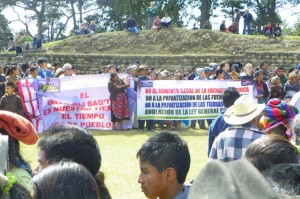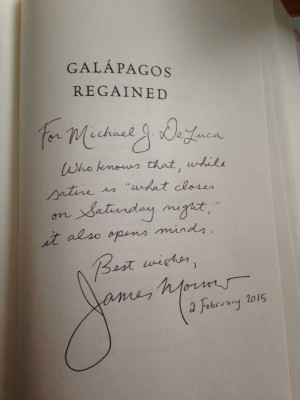(what is it good for? pissing people off
making pissed off people feel better)
I have an idea for a journal of environmental justice fiction. Will I follow through with it? Time will tell, wiser heads will tell against it. Tentative title, Reckoning: a word that means variously figuring out where one is, charting a course ahead, and settling accounts for decisions made in getting here. Also a Grateful Dead reference.
When I awoke, the Dire Wolf
Six hundred pounds of sin
Was grinning at my window
All I said was “come on in”
Environmental justice? It’s where social justice and climate/environmental activism intersect. Indigenous peoples comprise only 6% of the world’s population and contribute basically not at all to climate change but suffer its effects in absurd disproportion; they also do an absurd disproportion of the work to try to stop it. Among industrialized peoples, meanwhile, access to natural resources tends to be a privilege of the rich, polarizing the demographics of climate activism over the long term—another devastating effect of institutional oppression. I grew up hiking, camping, traveling to national parks; I love nature and want to protect it. I grew up with limited access to people of other cultures and backgrounds; I had trouble understanding everything that meant, and I have to work at it constantly.

Indigenous protesters at Iximche on the eve of 13 Baktun
More and more, environmental justice seems to me the best way to come at climate activism, because it’s about people. People are part of nature, it’s meaningless without them, people will make or break it.
Environmental justice fiction? As distinct from “cli-fi”, which I find often amounts to bandwagon-jumping, fiction written on a hotbutton topic in order to take advantage of that topic’s popularity rather than contribute anything to it. I want to encourage people to write, so I can buy, then publish beautiful, weird fiction that engages with all of the above on a visceral, personal level, so that people who read it can understand, empathize, learn and think about it in ways they didn’t before.
Fiction with a purpose beyond than to entertain? It’s hard, I know. Problematic. People don’t like to be preached to. But people do it. Works of environmental justice fiction:
- James Morrow, Galapagos Regained
- Benjamin Parzybok, Sherwood Nation
- Derek Wolcott, Omeros
- Ursula K. Le Guin, The Dispossessed
- Miguel Angel Asturias, Men of Maize (still astonishingly difficult to find in English)
Too many books by white guys. That’s a problem. It’s a symptom. And it’s something I’d like to fix, in myself as much as in the field (insofar as there’s actually a field or the potential for one). I’ll work on fixing it in myself this year—I’ve taken Tempest’s reading challenge, an opportunity to find more like this in places I find it too easy to forget to look.
But I’m afraid I’m going to learn that fiction with a purpose, by its nature, is harder to find because there just isn’t that much of it. Because, as Mr. Morrow quoted in my copy of Galapagos Regained, “satire is what closes on Saturday night”. Because it’s less popular, it’s less profitable, therefore less published, therefore less written. This is part of why I want to start a venue for it. Also because it’s something I can actually do to contribute, to make some kind of difference. I love fiction, and I understand it better than I understand climate science, better than I understand race.
How much difference could a journal of environmental justice fiction really make? Escapism, as fun as it is, necessary as it may be to many of us, can be a cheat, and at best a temporary solution. A better solution: escape from the world awhile if you need to, then come back and change it. Fiction serves the former purpose, it seems easy to argue, while activism serves the latter. Or there’s the argument that fiction with a purpose doesn’t actually serve the purpose it purports to because people only seek out and read fiction that reinforces their worldview; when they find concepts in fiction they disagree with, it just makes them angry. That’s true, I know it, it happens to me. But it’s not the whole truth. I have enough optimism left to believe that despite our culture of polarizing political propaganda, some people’s worldview still includes open-mindedness. Reading fiction teaches empathy. It teaches optimism. Both things we don’t have enough of. So maybe a better way to think about it is this: escape from the world for awhile if you need to, come back enlightened, and change the world according to what you’ve learned.
Is that enough? Enough to justify a Reckoning? No. No, it should go further. A journal of environmental justice fiction, ideally, would be donating part of its profits to activism, the kinds of things that actually effect direct change in the world. But see above; if fiction with a purpose were profitable, there would be more of it. Well, fine. At the very least, it could provide a soapbox for progressive thought, for nonfiction, journalism, free advertising for those organizations effecting change. It could not be printed on dead trees. If it existed on the internet, it would likely have to be served from a server in my basement running off the solar panels on my roof.
I’m not delusional. I’ve seen too many fiction venues come and go to think this thing, with me at its helm, could be anything like a Grist or a Clarkesworld or even an LCRW. I haven’t even thought through the logistics: how much would it pay, how often would it go to print, how many stories, where would that money come from? Should I even be the one running it? Who else am I going to get to run it?
Still, it’s a big, round, tempting idea, a fine thought experiment not unlike those I’d hope it would engender, like what science fiction I think aspires to be at its purest. And not entirely unlike what myth is, fantasy: a moral lesson on what it is to be the human product of an ageless, fathomlessly complex network of life we’re always in the process of altering irreparably.

Rain god mask, from the Maya: Hidden Worlds exhibit at the Museum of Science in Boston


Mike, I tend to think fiction with a certain aesthetic is a much better approach. I’m rather put off by “moral fiction.” Fiction tends to reflect the morality of the author, meaning progressive environmental fiction of the type you want would come out of certain minds rather than a specific teaching intent.
Ben P I assume was not writing a lesson. He was writing a story. His world view, his concerns, his playfulness and activism all came through because it was his story.
Presenting more fiction (and writing) with these concerns is great. But I would only read it if the writing was done in service to its true purpose. For the fiction that would mean storytelling (of a plot or personal nature) for essays it would mean illuminating viewpoints or information I was not previously aware of.
To me Ecotone (which I am not incredibly familiar with but respect based on reputation) comes closet to what you envision.
http://www.ecotonejournal.com/index.php/home/about/
Yeah, you’re right. Preachiness doesn’t make good fiction. Where Galapagos Regained is weakest is when it gets preachy–but it overcomes that with humor, as is maybe one of the points of satire. I got some preachy fiction in the LCRW slush and rejected it.
Reading over this, there is a line or two of clarification I should have put in about that right here: “People don’t like to be preached to. But people do it.” The best fiction with a purpose does not preach and doesn’t have to; it relies on the intelligence of readers to reach their own conclusions.
That I totally agree with 🙂
Did you ever get a chance to read my story “Evolutionaries”? It was something I put online, rather than sub to a market, so I remember posting about it once or maybe twice and that’s it. PDF here: http://inkedhistorian.files.wordpress.com/2014/04/cuinn-evolutionaries6.pdf
I have not! Will read.
I agree with Julie that fiction that points out a moral problem is hard to get right without coming across as preachy–yet it has been done and can be done, and having a publication devoted to environmental justice would provide an arena in which writers could work at finding plausible ways to accomplish that difficult kind of writing.
But I know it might be hard to find readers who are up for that kind of engagement. Some environmental justice issues are real conversation killers. If there’s a way to make that work, though, it would be a great thing to achieve (says me, anyway).
Good points, Luc, thank you. I fear you’re right that there would be a fair amount of preaching to the choir involved. Are there enough people in the choir to make it worthwhile? I hope so.
I’m inclined to wait and see the reaction to the LCRW issue–which isn’t on exactly the same theme, but there’s overlap–and reevaluate then. Staring at the not-quite-complete TOC as we speak, the prospect of being able to send these stories out into the world fills me with joy.
Oh, and there’s some very good work out there being done on how to communicate with people who aren’t in the choir, at least on the subject of climate change, e.g. http://www.faceclimatechange.com/how-to-talk-with-a-climate-dissenter/ . So I don’t think it has to be about preaching to the choir, even though it’s a lot harder to reach out to everyone else when your perspective clashes with theirs!
I’m so looking forward to reading it, Mike. I only wish I’d had time to write something new to submit, instead of all the surgery/prep stuff I did instead. Though, you know, that was important too 🙂
Thank you!
And I’m very glad to hear your surgery seems to have gone well and you’re coming out of the weeds of recovery.
I hope sometime to give you another opportunity to submit!